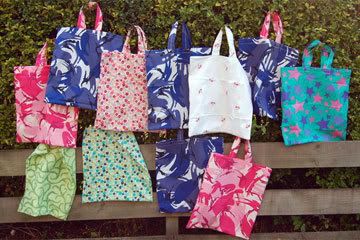
Apparently, if you put a frog in boiling water it’ll frantically try to escape, but if you put it into a pan of tepid water it’ll feel comfortable and as the water heats up, will fall into a tranquil state, gradually allowing itself to be boiled to death without even noticing.
We humans, as intelligent as we may be, are acting like frogs!
When we first arrived (evolved) on this planet it was nice and lukewarm; a good, comfortable place to be. Everything we needed was provided for us. It seems to me that as we developed our intelligence so our ‘wants’ developed too; we were no longer satisfied to just cover our ‘needs’. We chopped down forests and woodland and killed more animals than we actually needed for food in order to satisfy our gluttonous demands and, perhaps worse, as entertainment, making many extinct along the way.
Eventually the alpha humans' greed and laziness led them to oppressing those who were easily manipulated. Instead of leading the pack, they tyrannised them. A few lived well at the expense of many. Eventually those alpha humans became dissatisfied with their lot, wanting even more and looked abroad, to far off lands, for more slaves to do their bidding.
But never happy with their lot, always seeking more, they then wanted machines to do the work. That way they could produce more and use their persuasive power to have the rest of the people want more, too. Soon factories were built, spewing out toxic waste both into the air and waterways, but still the majority had to work long hours, either in hazardous factory conditions or as servants in the homes of the rich.
The situation hasn’t really changed much.
We still have a few living in luxury while the rest of us sell our services in order to afford the products that the few would have us believe will make our lives as rich and meaningful as theirs. Buy this, buy that, buy, buy, buy – it’s the only way to be happy. The wealthy still have servants: nannies, au pairs, gardeners, body guards, personal shoppers, cleaners, dog walkers, etc. Just yesterday DD2 saw a celebrity in Selfridges with her bag carrier! These people are often paid nothing more than the minimum wage.
The water’s becoming dangerously hot now. How long is it before the pan boils?
While recycling is a good thing, avoiding products that need to be recycled is even better, as is buying items made under fair and safe conditions. Unfortunately it’s often small manufacturers that produce ethical goods and, price wise, they can’t compete with the ‘big fish’ and even if they can, producing products in an environmentally friendly manner often costs more.
But even most of us who are on a low income can afford to be ethical when we open our purses as long as we’re willing to give up the unnecessary luxuries that we’re told we need in order to be happy. Would I rather pay £5 a litre more for eco-friendly paint or buy a couple of CDs? As much as I enjoy music, the survival of the planet means more to me. Don't get me wrong, I do buy the occasional CD but if I can only choose one...
Only we, the ‘little people’ - the majority - can stop the pan from boiling. We can vote with our actions rather than at the polling booth. By ceasing to buy goods and services that aren’t both ecologically and humanely ethical, eventually they’ll disappear and be replaced with what the market’s calling for. It won’t happen over night, and shouldn’t, either. We can’t just switch from an economy based on growth to one based on sustainability without adjustments needing to be made and adjustment takes time. But we must start.
Nobody’s saying we should go back to living in mud huts and cooking self hunted meat over open fires, but we can develop a new way of living; one that’s both comfortable, healthy and ecologically sound.
Sharon J
~~+~~
[Photo credit: ozoni11 at Flickr.com]














 Subscribe by Email
Subscribe by Email


















